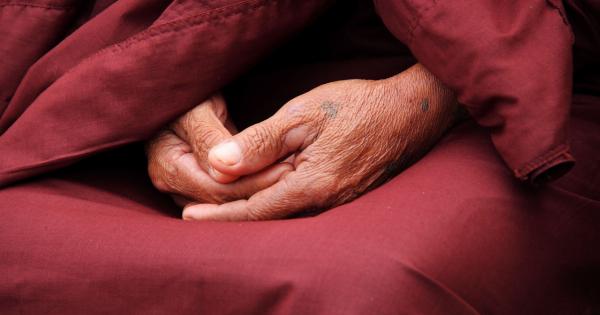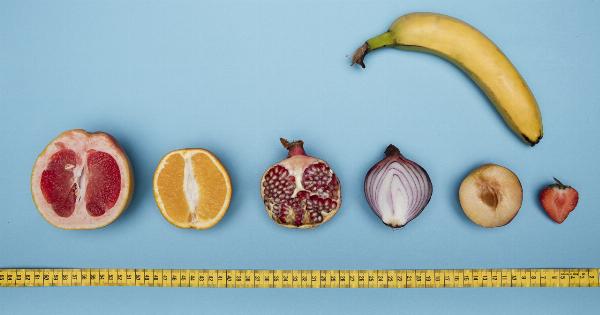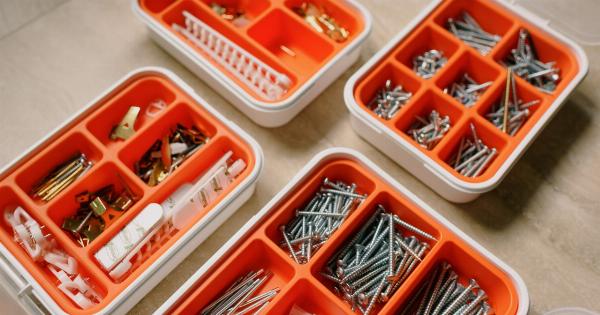There has long been a fascination and obsession with the size of a man’s sex organ. It is a topic that has been the subject of countless jokes, insults, and even insecurities.
But does a man’s character truly correlate to the size of his sex organ? In this article, we will explore this age-old question and unravel the truth behind this myth.
The Anatomy of the Sex Organ
To better understand the relationship between a man’s character and the size of his sex organ, it is crucial to first comprehend the anatomy of the male reproductive system.
The primary sexual organ in men is the penis, which consists of the glans, shaft, and root. It also contains spongy tissues that fill with blood during sexual arousal, leading to an erection.
Dispelling the Myths
Before diving into the relationship between a man’s character and the size of his sex organ, it is essential to dispel the myths and misconceptions surrounding this topic.
Contrary to popular belief, penis size has no direct correlation with fertility, sexual stamina, or overall satisfaction during intercourse. Studies have consistently shown that these factors are influenced by various physical and psychological aspects rather than the size of the organ itself.
Character Traits: More Than Meets the Eye
When it comes to assessing a man’s character, it is essential to recognize that it is shaped by a multitude of factors. Personality traits, upbringing, education, experiences, and values all contribute to a person’s character.
Reducing someone’s character to the size of their sex organ oversimplifies the complexity of human nature and fails to consider the vast array of qualities that make up an individual’s personality.
Society and Stereotypes
The obsession with the size of a man’s sex organ can be attributed to societal stereotypes and cultural influences.
Media, pornography, and societal notions of masculinity often portray a larger sex organ as an indicator of virility, power, and sexual prowess. However, it is crucial to remember that these are mere stereotypes that do not reflect the reality or diversity of human experiences.
No One-Size-Fits-All
It is important to recognize that there is a wide range of penis sizes among men. Just like any other physical attribute, size varies significantly from person to person.
It is unreasonable and unfair to judge an individual’s character or sexual abilities based solely on the size of their sex organ. Making assumptions or generalizations based on physical appearance perpetuates harmful stereotypes and undermines the importance of individuality.
Confidence and Self-Esteem
One factor that can influence a man’s character is his confidence and self-esteem.
However, it is crucial to note that confidence and self-esteem should stem from a person’s overall self-perception and not be solely dependent on physical attributes. While societal pressure and insecurities related to body image can affect confidence, it is essential for individuals to develop a sense of self-worth beyond physical appearances.
Communication and Intimacy
In healthy relationships, effective communication and emotional intimacy play a crucial role in sexual satisfaction and overall relationship satisfaction.
These factors have a more significant impact on sexual compatibility and happiness than the size of a man’s sex organ. The ability to establish trust, express desires, and prioritize emotional connection fosters a healthier sexual relationship.
Embracing Body Positivity
Instead of perpetuating unrealistic expectations and harmful stereotypes, it is crucial to embrace body positivity. Appreciating and accepting diverse body types and sizes can lead to healthier attitudes towards oneself and others.
By focusing on character, emotional connection, and overall well-being rather than physical attributes, individuals can foster healthier relationships and promote a more inclusive society.
Conclusion
The notion that a man’s character is proportional to the size of his sex organ is a myth steeped in stereotypes and societal pressures.
A person’s character is influenced by numerous factors and cannot be reduced to a single physical attribute. It is essential to recognize the importance of open-mindedness, acceptance, and embracing individuals for their unique qualities rather than perpetuating harmful stereotypes or judgments based on physical appearance.





























